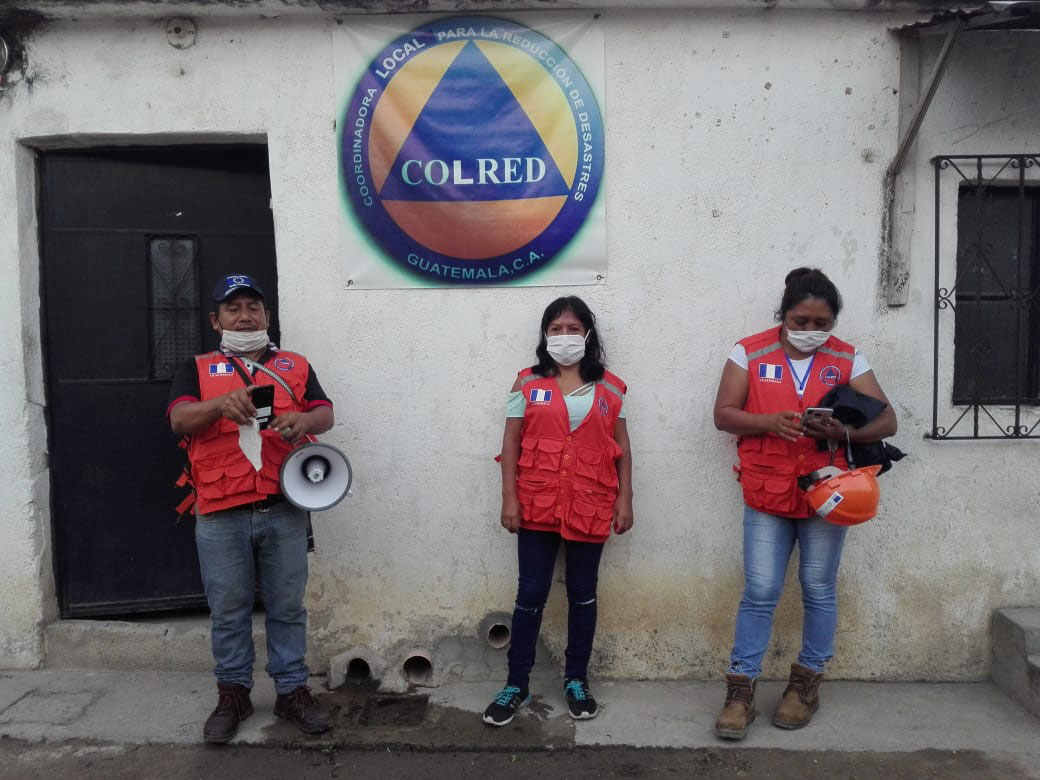Open Letter from the Chair

Dear Huairou Commission Members and Supporters,
I am reaching out in the hope that you and your loved ones are keeping safe and healthy through this unprecedented global COVID-19 pandemic. We take comfort knowing that women are organizing across your communities, playing the caregiving roles that are helping keep people fed and alive and providing leadership to carry us through these challenging times.
As the media reports hourly on the numbers of people infected and mortality rates, our grassroots women’s groups are reporting their experiences across our network as well. From Latin America, the Caribbean, Africa, Asia, Europe and North America, leaders are sharing information daily on the numbers of families struggling to produce, access and afford nutritious food and practice safe hygiene in settlements with limited public toilets and water pumps Noting that women are tasked with extreme caregiving responsibilities in response to school closings, unemployment and curfews and require support, the increased incidence of violence against women is doubly alarming and intolerable. Members are also sharing how curfews and similar measures are being used as tools to repress communities’ rights and roles in holding governments accountable for rapid response and access to timely and accurate information.
Covid-19 is also restructuring our global movement’s priorities, workplans and forms of associating. Our policy advocacy work with UN and government policy makers is formally paused and postponed; and our leadership, peer learning and development programs is shifting to ‘distanced’ and virtual. As we have worked since the 1990s to protect African women, families and communities against the ravaging impact of HIV-Aids; we now must focus on how we will embed and integrate resilience to health crises within our globally recognized efforts to scale climate and disaster resilient communities. For these reasons, our Governing Council is committed to ensuring leaders collect data and evidence to record community impact and advance their priorities with local and national decision makers. As grassroots leaders share how women are disproportionately and uniquely impacted and the collective leadership we are assuming to mitigate damage, we will consolidate this information and disseminate it widely (as we integrate the learnings in an updated strategy).
A Sample of Our Members’ Practical and Strategic Protective Actions
Through social media, phone and conference calls, our members, Governing Council and Secretariat staff have been sharing and cross fertilizing the actions grassroots womens’ groups are taking across their rural and urban communities as part of assessing what collectively we will do as a movement to face these challenges.
From DAMPA, in the Philippines, we learned grassroots women leaders are working directly with their local authorities to significantly increase the number of recognized local food ration card holders so more households in informal settlement have stable food supplies.
Meanwhile, the multi-city/settlement network is using their own Community Resilience Funds for bulk purchases to maintain their own food banks. In Central America, our members are working with their national disaster management authorities to provide information and raise community awareness of pandemic preparedness measures and also provide authorities with information on local conditions and community priorities.
In the districts making up metropolitan Kingston, Groots Jamaica members, locked down early on, told us how they are connecting daily to report on the elderly, family welfare, food and basic medicine distribution, and monitor emerging government support programs to ensure all poor neighborhoods get benefits. In New York City, Bronx Clay Avenue and East Harlem James Weldon Johnson public housing tenant associations members are doing an incredible job partnering with well-known private sector chefs and philanthropists to provide thousands of cooked and frozen meals daily to more than 1200 low income residents many of whom are homebound seniors—a job the city couldn’t do without them.
Rural members are equally pro-active and leading efforts to distribute the food they have on hand, replant to ensure stable food supplies and anchor crowd-sourced fund drives to protect the most vulnerable households in their villages and towns.
My own Shibuye Community Health Workers Group in Kenya has started the new planting season by adjusting our methods to maintain social distance. We also use Facebook actively to monitor community and government issues and coordinate grassroots CBO priorities.
Our Indian members—representing a large network of federated rural women farmers and entrepreneurs who have pioneered adaptive small scale food production in drought-devastated parts of Maharashtra with Swayam. Shiksan Prayog—today are undertaking wide-scale food and household security drives and seeking external support for their efforts. Their short and mid-term actions include: enumerating the most vulnerable households and linking them to existing support systems; distributing dry food ration packages at scale and mounting community kitchens and food programs to help stranded migrant workers; and lobbying local councils to increase water supply to improve hygiene. Such a holistic approach will surely position grassroots federations as key drivers of a proactive response.
These examples are a few of the undocumented, undervalued practices that demonstrate the innovation and leadership of organized community women (all-too-often labelled “beneficiaries” and “vulnerable groups” by government, humanitarian and development agencies).
Community Resilience Funds for COVID19 Action
To reset this equation, Huairou’s Governing Council and Global Secretariat has established a $100,000 Community Resilience Funds (CRF) for Covid-19 Action initiative to help our members get ahead of the crisis. The CRF will provide seed money to support: community organizing and information gathering, food, livelihood, and health security work; and underwrite the communication costs groups are incurring to stay in touch with fellow leaders and press and partner with government officials. We welcome and will be soliciting matching contributions to sustain and grow these resilience building actions.
Call for Global Advocacy Effort
Globally, our focus is on the post crisis phase, and we will be testing strategies and partnerships to center rural and urban grassroots women’s groups in economic recovery and development investments (livelihoods, jobs, markets and assets). Our policy advocacy and movement building agendas will be sustained in virtual forms (as we continue to influence governments and UN Agencies to recommit to gender equality, poverty eradication and women’s empowerment through advancing our strategies for realizing Beijing+25, Paris Agreement on Climate Change, Sendai Framework for Disaster Risk Reduction, the New Urban Agenda and the Sustainable Development Goals). Our connections to our global membership in 45 countries will get even stronger—as our regional platforms and organizers will sustain virtual connectivity to share gains and challenges and support members to participate in global programming: the framing of our 2021-25 Strategic Plan and the launch of our grassroots leadership development program. We will stay busy!
To our allies in government, philanthropy, finance, development and humanitarian fields, we ask you to urge your colleagues to commit to policies and programs that consciously require and resource the participation and leadership of grassroots women’s organizations who live and work in urban and rural poor communities on the frontlines of the pandemic.
Recognizing the social capital, talent, trust and credibility these women’s groups have, we ask National Authorities, ministries and local agencies to design and implement aid delivery and recovery strategies that recognize and ensure:
Financial support and social protection subsidies reward grassroots women for their community organizing and caregiving roles in the pandemic (e.g. disseminating and collecting information to producing, distributing and preparing food to caring for the elderly, sick and young, etc.) and establish gender responsive livelihood restoration and economic recovery strategies in consultation with women’s groups.
Grassroots women’s community organizations are protected and supported to keep their doors and communication systems open as front line relief, recovery and reconstruction agencies closest to families and communities.
National Agencies responsible for the well-being of informal settlements and providing adequate and hygienic basic services commit to working with women’s groups to strengthen this infrastructure and immediately secure and improve the living conditions of families in poor communities; and
Humanitarian actors on the scene (e.g. international NGOs such as World Vision, Care and Save the Children as well as UN agencies such as OCHA, who can be guided by WFP’s effective work on empowering women as contractors in relief and resilience building) commit to fair and transparent coordination/partnerships strategies that rely upon and resource leading roles for grassroots women’s groups and consciously respect and reinforce communities agenda setting, implementation and aid monitoring roles.
I hope this update has been informative; and now I ask for your support. Although donations (money, technical support, sharing our good resilience practices) are useful and appreciated I have another ask: that you’ll endorse and help us realize our membership’s priority recommendations and call to action in these hard times.
May the diverse religious celebrations provide you all the opportunity to be with your loved ones find comfort and energy to stay active and impactful in the coming days!
![]()
Violet Shivutse, Chair
Huairou Commission Governing Council
